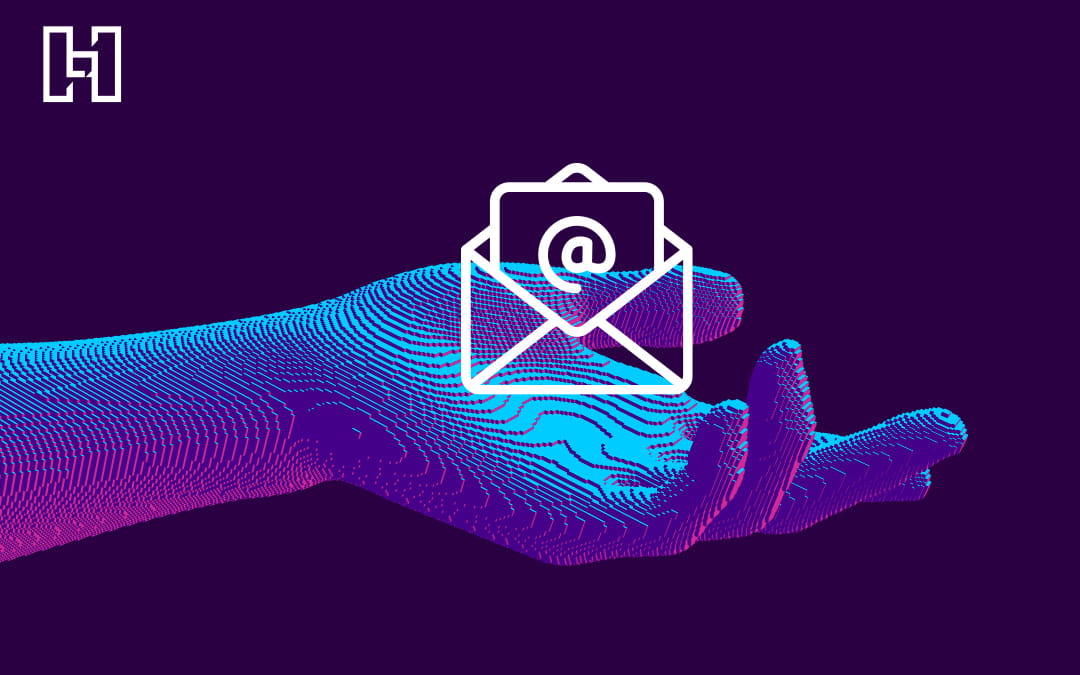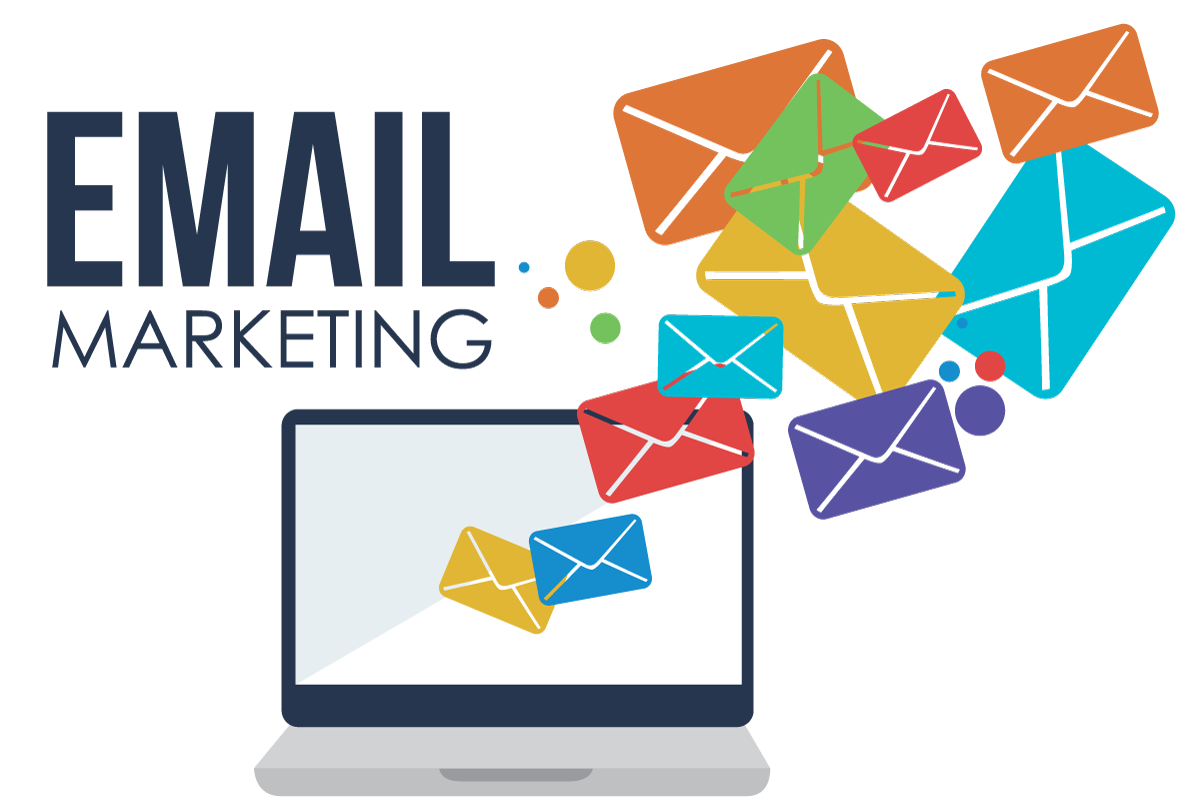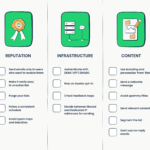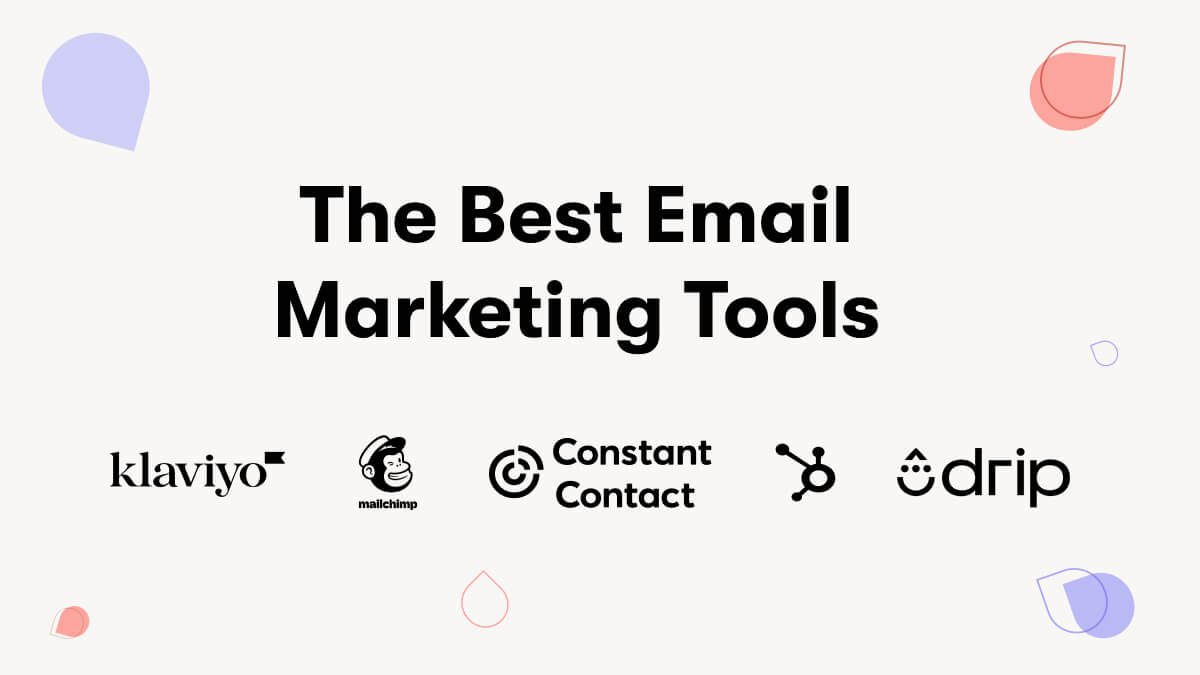Email marketing is a powerful tool for businesses. It helps connect with customers and boost sales.
In today’s digital age, staying connected is crucial. Email marketing offers a direct line to your audience. Whether you’re promoting a product, sharing news, or building relationships, it can drive results. This method is cost-effective and measurable. You can see who opens your emails and what they click on.
Plus, it’s easy to personalize messages, making each email feel special to the recipient. With the right approach, email marketing can be a game-changer for your business. Ready to dive in? Let’s explore how email marketing can benefit you.
Table of Contents
ToggleIntroduction To Email Marketing
Email marketing is a powerful tool for businesses. It helps in connecting with customers, boosting sales, and building brand loyalty. In this section, you will learn what email marketing is and why it is important for businesses.
What Is Email Marketing?
Email marketing involves sending emails to a group of people. These people are usually your customers or potential customers. The emails can contain various types of content such as:
- Promotions and discounts
- News and updates
- Product information
- Event invitations
Email marketing is not just sending random emails. It requires a strategy to be effective. This strategy includes:
- Building an email list
- Creating engaging content
- Segmenting your audience
- Analyzing the results
Importance For Businesses
Email marketing is crucial for businesses for several reasons. First, it helps in reaching a large audience quickly. You can send a single email to thousands of subscribers in minutes. This makes it a cost-effective way to communicate.
Second, email marketing allows for personalized communication. You can tailor your messages to fit the interests and behaviors of your audience. Personalized emails often have higher open and click rates.
Third, it is a great tool for building relationships with customers. Consistent and valuable email content keeps your brand in the minds of your customers. This can lead to increased customer loyalty and repeat business.
Lastly, email marketing provides measurable results. You can track metrics such as open rates, click-through rates, and conversion rates. These metrics help you understand what works and what does not. It allows you to continuously improve your email marketing strategy.
Building An Email List
Building an email list is crucial for any email marketing strategy. A robust list allows you to connect with your audience directly. It helps you deliver personalized content, boosting engagement and conversions. Let’s explore effective methods for building your email list.
Opt-in Forms
Opt-in forms are the first step in collecting email addresses. These forms should be simple and easy to fill out. Place them on your website’s homepage, blog posts, and landing pages. Here are some tips for creating effective opt-in forms:
- Keep it simple: Ask for only essential information, like name and email.
- Use clear language: Make sure the call-to-action (CTA) is straightforward.
- Placement matters: Position forms where they are easily visible.
Lead Magnets
Lead magnets are incentives offered to users in exchange for their email addresses. They can significantly increase your opt-in rate. Here are some popular types of lead magnets:
| Type | Description |
|---|---|
| eBooks | Provide valuable information on a specific topic. |
| Checklists | Offer step-by-step guides or to-do lists. |
| Discounts | Give special offers or coupon codes. |
| Webinars | Host live sessions on relevant subjects. |
Ensure your lead magnets are high-quality and relevant to your audience. This makes users more likely to subscribe and stay engaged with your emails.
Segmenting Your Audience
Segmenting your email audience is crucial for effective email marketing. It helps in sending the right message to the right people at the right time. This practice can lead to higher engagement rates, better customer satisfaction, and improved sales. Below, we will explore why segmenting your audience is important and how to do it effectively.
Why Segment?
Segmentation allows you to tailor your content to specific groups of people. This means your emails are more relevant and engaging. Here are some reasons why you should segment:
- Higher Open Rates: People are more likely to open emails that speak to their interests.
- Better Click-Through Rates: Relevant content encourages recipients to take action.
- Reduced Unsubscribe Rates: Targeted emails are less likely to annoy recipients.
- Improved Conversion Rates: Personalized emails can lead to more sales.
Effective Segmentation Strategies
There are many ways to segment your audience. The key is to find what works best for your business. Here are some effective strategies:
- Demographic Segmentation: Group your audience by age, gender, or income.
- Geographic Segmentation: Segment based on location, such as country, state, or city.
- Behavioral Segmentation: Consider how customers interact with your brand. For example, segment by purchase history or website activity.
- Psychographic Segmentation: Focus on lifestyle, values, or interests.
- Engagement Level: Segment by how often they open or click your emails.
Using these strategies, you can create more personalized and effective email campaigns. This leads to better engagement and improved results.

Credit: hurrdatmarketing.com
Crafting Compelling Emails
Creating compelling emails is essential for engaging your audience and driving results. Knowing how to craft emails that capture attention can boost your marketing efforts. This section will guide you through important elements like subject lines and email copywriting tips to ensure your emails stand out.
Subject Lines
The subject line is the first thing your readers see. It should grab attention and make them want to open the email. Here are some tips for writing effective subject lines:
- Keep it short – Aim for 6-10 words.
- Be clear – Let readers know what to expect.
- Create urgency – Use words like “today” or “now”.
- Personalize – Include the recipient’s name.
- Avoid spammy words – Words like “free” or “buy” can trigger spam filters.
Email Copywriting Tips
Once your subject line has captured attention, the email content must keep it. Here are some tips for writing compelling email copy:
- Start with a strong opening – Use a greeting that feels personal.
- Be concise – Get to the point quickly.
- Use bullet points – They make content easy to scan.
- Include a clear call-to-action – Tell readers what you want them to do.
- Use simple language – Avoid jargon and complex words.
- Break up text – Use short paragraphs and white space.
Here’s an example of a well-structured email:
Subject: Don't Miss Out! 20% Off Ends Today Body: Hi [Name], We have an exclusive offer just for you. Enjoy 20% off your next purchase, but hurry, this offer ends tonight! Shop Now Best regards, [Your Company]
Remember, effective email marketing relies on crafting messages that resonate with your audience. With these tips, you can create emails that not only get opened but also drive action.
Designing Email Templates
Creating effective email templates is crucial for a successful email marketing campaign. A well-designed template can boost engagement and drive conversions. This section will discuss key aspects of designing email templates, focusing on Responsive Design and Visual Appeal.
Responsive Design
Emails should look good on any device. Ensure your template is mobile-friendly. Over 50% of emails are opened on mobile devices. A responsive design adapts to different screen sizes. This improves user experience and increases engagement.
- Use flexible layouts.
- Avoid large images.
- Test on various devices.
| Element | Responsive Tips |
|---|---|
| Images | Use scalable images |
| Text | Readable font size |
| Buttons | Large, clickable buttons |
Visual Appeal
Visual elements capture attention. A visually appealing email template can make a big difference. Use a clean, simple design. Avoid clutter and too many colors.
- Header: Clear and concise.
- Images: High-quality and relevant.
- Layout: Structured and organized.
Follow these tips for a visually appealing template:
- Use consistent branding.
- Balance text and images.
- Include whitespace for readability.
Automation And Workflows
Automation and Workflows are essential in Email Marketing. They help streamline your campaigns and improve efficiency. By setting up automated processes, you can ensure your emails reach the right audience at the right time. This makes your marketing efforts more effective and less time-consuming.
Welcome Series
A Welcome Series is a set of emails sent to new subscribers. These emails introduce them to your brand and products. A typical welcome series includes:
- An introduction to your brand
- Information about your products or services
- A special offer or discount
Welcome emails have higher open rates. They set the tone for future communications. They help build a relationship with your new subscribers.
Behavioral Triggers
Behavioral Triggers are emails sent based on a subscriber’s actions. These actions can include:
- Browsing a product
- Adding items to their cart
- Making a purchase
Behavioral triggers are highly effective. They are timely and relevant. They help you engage with your audience on a personal level.
| Trigger | Example Email |
|---|---|
| Product Browsing | Recommend similar products |
| Cart Abandonment | Reminder to complete purchase |
| Post-Purchase | Thank you email with product tips |
Setting up these automated workflows ensures that your subscribers receive relevant content. It improves engagement and increases conversions.
Analyzing Campaign Performance
Email marketing is a powerful tool. But understanding its impact is crucial. Analyzing campaign performance helps you see what works. It shows you where to improve. By checking key metrics, you can make data-driven decisions. This ensures your email campaigns are effective and engaging.
Key Metrics To Track
Tracking the right metrics is essential. Here are some key metrics you should monitor:
- Open Rate – The percentage of recipients who open your email. A high open rate means your subject line is effective.
- Click-Through Rate (CTR) – The percentage of recipients who click on links in your email. This shows how engaging your content is.
- Conversion Rate – The percentage of recipients who complete the desired action. This could be making a purchase or signing up for a newsletter.
- Bounce Rate – The percentage of emails that could not be delivered. High bounce rates can harm your sender reputation.
- Unsubscribe Rate – The percentage of recipients who opt out of your emails. High rates suggest your content may not be relevant.
Improving Email Performance
After tracking key metrics, focus on improving your email performance. Here are some tips:
- Personalize your emails – Use the recipient’s name and tailor content to their interests.
- Optimize subject lines – Keep them short and engaging. Avoid spammy words.
- Segment your audience – Group your subscribers based on behavior or demographics. This ensures more relevant content.
- Test different elements – Use A/B testing to find out what works best. Test subject lines, images, and call-to-actions.
- Analyze and adjust – Regularly review your metrics. Make adjustments based on your findings.
By focusing on these areas, you can improve your email campaigns. Always aim for better engagement and conversion rates.

Credit: www.effectiveecommerce.com
Compliance And Best Practices
Email marketing is a powerful tool for businesses. But, it’s essential to follow the rules and guidelines. Compliance ensures that your emails are well-received and respected. Below, we will explore key components of email marketing compliance. We will also cover best practices to maintain a healthy email list.
Gdpr And Can-spam
The General Data Protection Regulation (GDPR) and the CAN-SPAM Act are crucial regulations. GDPR is a law that protects data privacy in the European Union. It ensures that individuals have control over their personal data. The CAN-SPAM Act, on the other hand, regulates commercial emails in the United States. It sets rules for commercial messages and gives recipients the right to stop receiving emails.
To comply with GDPR:
- Obtain explicit consent before sending emails.
- Provide clear and concise information about data use.
- Allow recipients to easily withdraw consent.
To comply with the CAN-SPAM Act:
- Include a clear and visible unsubscribe link.
- Use accurate “From” and “Subject” lines.
- Provide a physical address.
Maintaining A Healthy List
A healthy email list is key to successful email marketing. It ensures that your messages reach engaged recipients. Here are some best practices to maintain a healthy list:
- Regularly clean your email list. Remove inactive and invalid email addresses.
- Segment your audience. Tailor your messages to different groups based on their interests.
- Use double opt-in. Confirm subscriptions to ensure genuine interest.
- Monitor engagement rates. Track open and click rates to identify inactive subscribers.
- Respect unsubscribe requests. Promptly remove users who opt out.
Maintaining a healthy list also involves collecting emails ethically. Avoid buying email lists. Focus on organic growth through sign-ups and lead magnets.
Case Studies And Success Stories
Email marketing is a powerful tool. It can help businesses grow and connect with their audience. In this section, we will explore real-life examples of successful email marketing campaigns. These case studies and success stories highlight the effectiveness of email marketing in different industries.
E-commerce Success
Many e-commerce businesses have seen growth through email marketing. Let’s look at a few examples.
- Company A: They launched a holiday sale via email. This campaign increased their sales by 25%. They used personalized subject lines and product recommendations.
- Company B: They sent out a weekly newsletter. This newsletter included product updates and special offers. Their open rates jumped by 40%, and click-through rates doubled.
These companies used effective email marketing strategies. They tailored their messages to their audience. This personalization led to higher engagement and sales.
B2b Email Marketing Wins
Email marketing is not just for e-commerce. B2B companies also benefit from it. Here are a couple of examples.
- Company X: They created an email campaign targeting potential clients. This campaign included case studies and testimonials. Their lead generation increased by 30%.
- Company Y: They sent regular educational content to their subscribers. This content addressed industry trends and solutions. Their subscriber base grew by 50%, and they saw a rise in client inquiries.
These B2B companies focused on providing value through their emails. They shared relevant and useful information. This approach built trust and nurtured relationships with their clients.

Credit: www.forbes.com
Future Trends In Email Marketing
Email marketing is evolving rapidly. With technology advancements and shifting consumer preferences, the future holds exciting possibilities. Staying informed about the latest trends ensures your campaigns remain effective and engaging. Let’s explore some future trends in email marketing.
Ai And Personalization
Artificial intelligence (AI) is transforming email marketing. AI analyzes user behavior and preferences. This helps create highly personalized content. Personalized emails improve engagement rates and customer satisfaction.
AI can also automate various tasks. For instance, AI can segment your audience based on their actions. It can optimize send times and recommend products. This level of personalization was impossible before.
Consider the following benefits of AI in email marketing:
- Enhanced customer experiences
- Increased open and click-through rates
- Efficient campaign management
Embracing AI in your email strategy is essential. It keeps your messages relevant and timely.
Interactive Emails
Interactive emails are gaining popularity. They engage users directly within the email. This reduces the need for external links. Interactive elements can include:
- Surveys and polls
- Quizzes
- Image carousels
- Embedded videos
These features make emails more engaging. They encourage recipients to interact with your content. This leads to higher engagement and conversion rates.
Here is a comparison table highlighting traditional vs. interactive emails:
| Traditional Emails | Interactive Emails |
|---|---|
| Static content | Dynamic content |
| External links needed | Engagement within email |
| Lower engagement rates | Higher engagement rates |
Interactive emails provide a richer user experience. They make your campaigns stand out. Adopting these elements can elevate your email marketing strategy.
Frequently Asked Questions
What Is Email Marketing?
Email marketing is a digital strategy to promote products or services via emails. It helps engage customers, build relationships, and drive sales.
How Effective Is Email Marketing?
Email marketing is highly effective. It has a high return on investment (ROI) and allows direct communication with the audience.
How To Create An Email Marketing Campaign?
To create a campaign, define your goals, segment your audience, craft engaging content, and schedule your emails. Monitor performance.
Why Is Email Marketing Important?
Email marketing is important because it helps businesses connect with customers, increase brand awareness, and drive conversions.
What are the Proven Strategies for Boosting Business Through Email Marketing Campaigns?
Looking to boost your business with proven email campaign strategies? Start by segmenting your email list to target specific customer groups. Personalize your emails and create compelling subject lines to increase open rates. Analyze your data and adjust your approach accordingly. Test different elements to optimize your campaigns for success. Consider incorporating interactive content such as polls or quizzes into your emails to engage your audience. Additionally, using automation tools can help streamline your email marketing efforts and ensure timely communication with your customers. By continuously refining your email campaign strategies, you can effectively nurture leads and drive conversions for your business.
Are the Strategies for Email Marketing and Email Campaigns the Same?
Looking to boost your business with proven strategies? It’s important to understand that while email marketing and email campaigns are related, they are not the same. Email marketing involves a comprehensive approach to building and nurturing customer relationships, while email campaigns focus on specific, targeted messages to achieve immediate goals.
Conclusion
Email marketing remains a powerful tool for businesses. It helps build relationships. With targeted messages, you can engage your audience effectively. Keep content relevant and concise. Use clear calls to action. Track your results to refine strategies. This way, you’ll see better engagement. To further improve your email marketing efforts, consider implementing gmail marketing strategies. This can include optimizing your emails for the Gmail platform, utilizing Gmail-specific features like promotions tabs, and crafting personalized messages that resonate with Gmail users. By incorporating these strategies, you can enhance the effectiveness of your email marketing campaigns and drive better results for your business.
Remember, consistency is key. Stay committed to your email marketing efforts. Success will follow with time and dedication.








